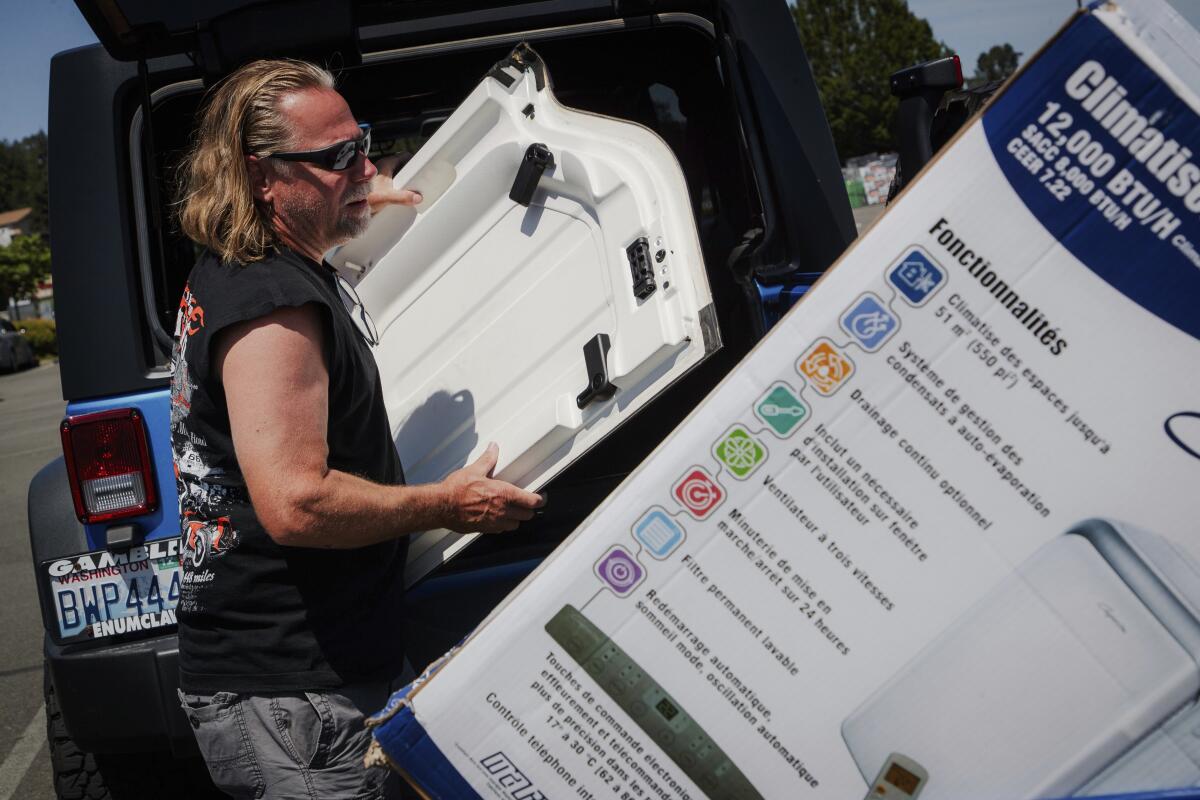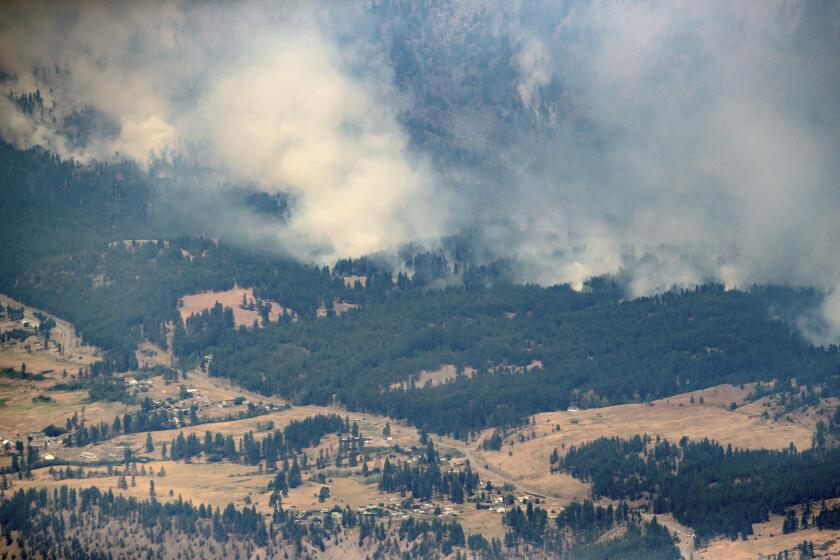Northwestern U.S. set for its hottest day of a long heat wave

- Share via
PORTLAND, Ore. — Temperatures are predicted to soar to 100 degrees in Portland, Ore., on Tuesday, which is expected to be the hottest day of a heat spell that meteorologists believe will be unusually long for the Pacific Northwest region, which rarely sees such scorching weather.
Oregon Gov. Kate Brown declared a state of emergency across much of the state, warning the extreme temperatures may cause utility outages and transportation disruptions.
“With many parts of Oregon facing a high heat wave, it is critical that every level of government has the resources they need to help keep Oregonians safe and healthy,” Brown said in a statement.
As the northwestern U.S. heated up, the hot spell on the East Coast appeared to have broken, with few areas east of the Mississippi River under heat advisories on Tuesday.
Philadelphia hit 99 degrees Sunday before factoring in humidity. Newark, N.J., had its fifth consecutive day of 100 degrees or higher, the longest such streak since records began in 1931. Boston also hit 100 degrees, surpassing the previous daily record high of 98 degrees set in 1933.
On Tuesday, highs were forecasted for the mid-80s in Philadelphia, New York and Boston.
Residents and officials in the Northwest have been trying to adjust to the likely reality of longer, hotter heat waves following last summer’s deadly “heat dome” weather phenomenon that prompted record temperatures and deaths.
A heat wave in the Pacific Northwest and western Canada was virtually impossible without human-caused climate change, a study says.
In response, Oregon passed a law requiring all new housing built after April 2024 to have air conditioning installed in at least one room. The law already prohibits landlords in most cases from restricting tenants from installing cooling devices in their rental units.
About 800 people died in Oregon, Washington and British Columbia during the 2021 heat wave in late June and early July. The temperature at the time soared to 116 degrees in Portland and smashed heat records in cities and towns across the region. Many of those who died were elderly and lived alone.
While temperatures this week are not expected to get that high, the anticipated number of consecutive hot days has raised concerns among officials.
The National Weather Service in Portland issued an extreme heat warning for large swaths of Oregon and Washington state out of concern that nighttime temperatures won’t help residents to sufficiently cool off.
The number of deaths believed linked to the intense heat wave that stifled western Canada, Oregon and Washington is now in the hundreds.
“The main reason for that warning is because of those low temperatures only getting into the 65- to 70-degree range, and the fact that this is such a long duration event,” said Colby Neuman, a meteorologist at the National Weather Service in Portland.
The forecasted lows “are only happening for one or two hours, right around sunrise. And that’s it,” said Neuman. “There isn’t a lot of time for households and apartments to cool off.”
Portland seems to be on track to “either tying or exceeding” previous heat wave duration records, Neuman said. The record stands at six consecutive days of 95 degrees or higher, which has only been reached twice before.
Portland officials have opened cooling centers in public buildings and installing misting stations in parks. Trimet, which operates public transportation in the Portland metropolitan area, will allow passengers who cannot afford fares to ride for free when heading to cooling centers.
Garbage trucks may start their rounds as early as 4 a.m. this week to allow drivers to work in the early morning, reducing exposure to heat and health risks. Many libraries are extending their hours, staying open until 8 p.m. to allow people more time to cool off.
Multnomah County, which includes Portland, plans to open four overnight emergency cooling shelters starting Tuesday so people who can’t get cool on their own can spend the night.
Officials hope the outreach efforts will help people facing the greatest heat risks — including older people, those living alone, people with disabilities, members of low-income households without air conditioning and people without housing.
Jenny Carver, Multnomah County’s emergency manager for the Department of County Human Services, said her work has focused on “ensuring that these sites are as low-barrier as we can make them.”
“We ask folks to just give a name and we don’t check any identification,” said Carver. “We make as many resources available as we can.”
More to Read
Sign up for Essential California
The most important California stories and recommendations in your inbox every morning.
You may occasionally receive promotional content from the Los Angeles Times.














